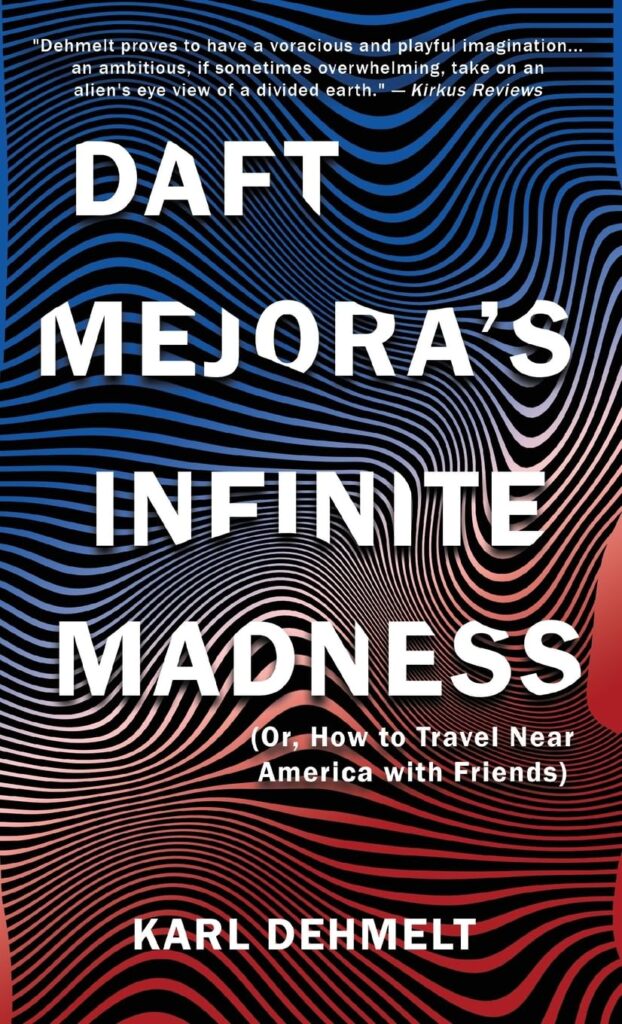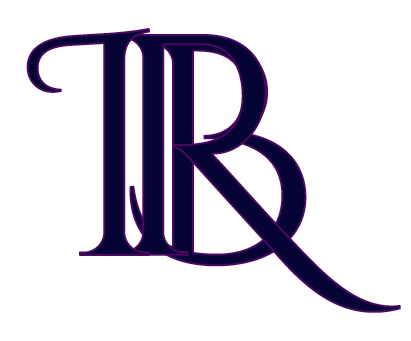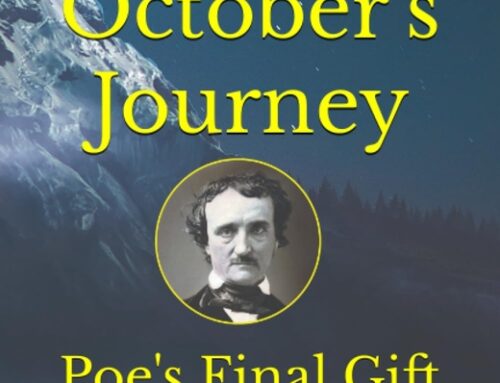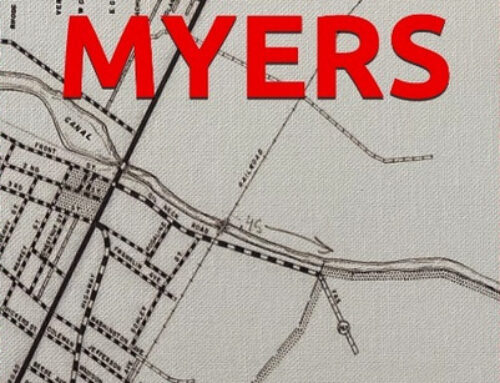 A satirical romp through the mind of a muddled nation, told through the eyes of an undercover alien leader, Daft Mejora’s Infinite Madness (Or, How to Travel Near America with Friends) by Karl Dehmelt is a scathing piece of trenchant brilliance. At times reading like a psychedelic thought experiment, this is an absurd and astonishingly poignant portrait of modern-day America.
A satirical romp through the mind of a muddled nation, told through the eyes of an undercover alien leader, Daft Mejora’s Infinite Madness (Or, How to Travel Near America with Friends) by Karl Dehmelt is a scathing piece of trenchant brilliance. At times reading like a psychedelic thought experiment, this is an absurd and astonishingly poignant portrait of modern-day America.
On an interstellar quest to better understand the capacity of the human brain, The Daft One and his two eccentric companions have arrived on Earth at the height of the Covid pandemic, with the semi-cesspool of the Internet forming their only preconceived notions. Taking the shape of a 14-year-old boy, The Daft One befriends the video game-loving son of a gun-toting, hoax-buying state representative, and it is through this bizarre lens of American life that this wary extraterrestrial initially engages with humanity.
Navigating the perils of QAnon conspiracies, Covid madness, conservative paranoia, and political bloodbaths amid the Land of Opportunity gives this far-out visitor a decidedly different first impression. Diving into the treacherous world of far-right extremists, he continues his mission to better understand humanity’s self-destructive nature, and ends up in exactly the right place for some high-quality data.
Commenting caustically on the blurring lines of the internet and reality, as well as fact and fiction, this is a narrative that defies convention with glee, balancing nihilism and awareness on a razor’s edge, tongue firmly set in cheek. With the comedically lyrical lines of Tom Robbins and savage turns of phrase that would make Hunter S. Thompson tip his cap, Dehmelt stands on the shoulders of giants without slipping too far into derivative tropes. The author is right in thanking John Kennedy O’Toole in his introduction, for much of this prose is laced with perfectly visceral wording, while there are also echoes of Pynchon from the more in-depth diatribes.
As a gut-punch of parody, the novel is timely, and readily alludes to the perennial sins of one overzealously patriotic superpower and other timeless villains, from violent Sunday rituals on the gridiron to America’s great purveyance of violence in the world at large. Moving through the muck of a divided world, from contentious school board meetings and anti-mask rallies to satirical senatorial proceedings and the National Guinea Pig Convention, this romp of a political screed will have you hysterical in more ways than one.
The surreal elements of the story are occasionally distracting, and can feel forced, such as the more long-winded passages from The Wise Owl, while the critical commentary about Republicans – and even random characters – is sometimes more crass than clever. Body-shaming language, for example, could be replaced with less superficial forms of mockery. However, given the contemporary setting of a digital generation fighting dirty battles both on and offline, a rough and potentially controversial edge to the prose is to be expected.
A wild, incisive, and wickedly critical novel, prepare to be occasionally shocked, frequently amused, and potentially inspired by this farcical dive down the dark hole of first contact.
Available At


















Leave A Comment